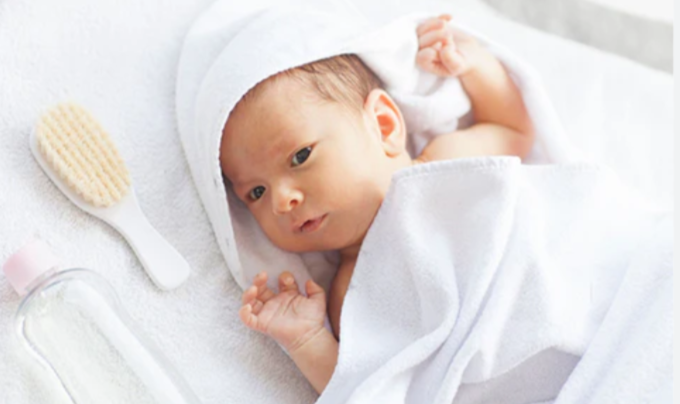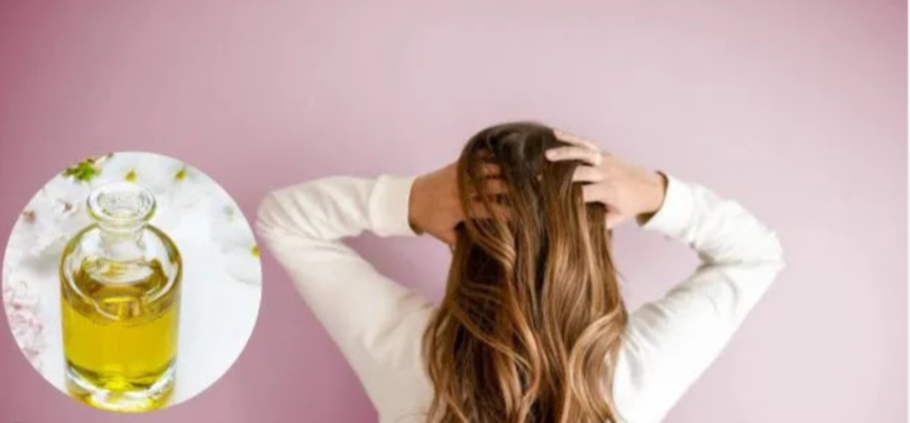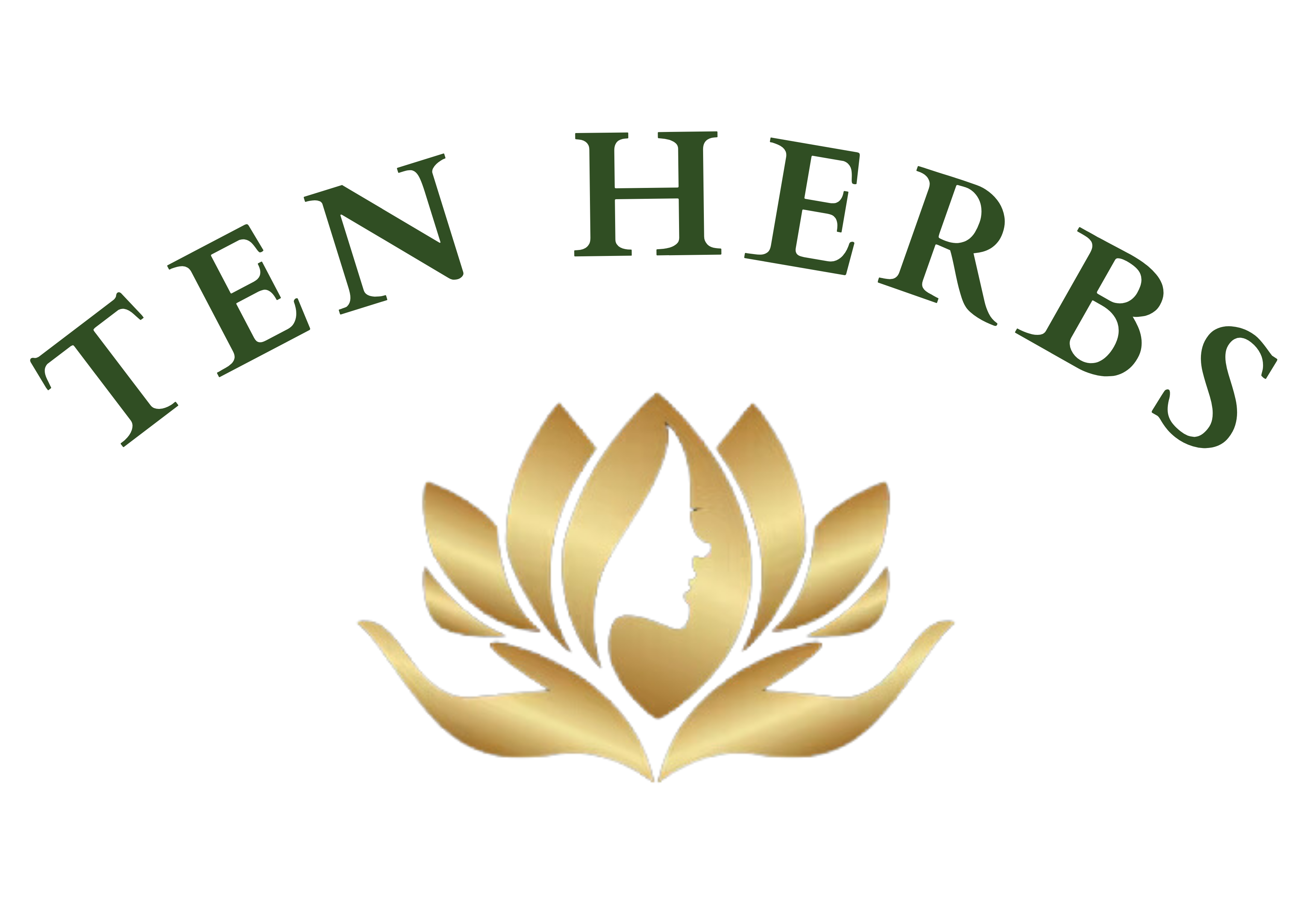Caring for your baby's hair is an essential aspect of their overall hygiene and health. One common practice among parents is oiling their baby's scalp and hair. This article delves into the benefits, recommended frequency, appropriate oils to use, and expert opinions on oiling your baby's hair.
Benefits of Oiling Your Baby's Hair

- Moisturization: Baby's scalp can be prone to dryness. Applying oil helps in moisturizing the scalp, preventing dryness and flakiness.
- Cradle Cap Management: Cradle cap is a common condition in infants characterized by scaly patches on the scalp. Oiling can help in softening these scales, making them easier to remove. The American Academy of Dermatology recommends using a non-food-based oil, like baby oil, to help soften the scales before shampooing.
- Hair Growth: While genetics play a significant role in hair growth, gentle scalp massages with oil can stimulate blood circulation, potentially promoting healthier hair growth.
- Bonding Time: The act of oiling and massaging your baby's scalp can serve as a bonding experience, providing comfort and relaxation for both parent and child.
Recommended Frequency of Oiling
The frequency of oiling your baby's hair can vary based on individual needs, hair type, and cultural practices. However, general recommendations include:
- Daily Oiling: Some traditions advocate for daily oiling to ensure the scalp remains moisturized. For instance, certain Ayurvedic practices recommend daily application of hair oil to nourish the scalp and hair.
- 2-3 Times a Week: For many babies, oiling the scalp 2-3 times a week is sufficient. This frequency ensures the scalp remains moisturized without causing excessive oil buildup.
- As Needed: Observe your baby's scalp and hair. If you notice dryness or flakiness, consider increasing the frequency. Conversely, if the scalp appears oily or if your baby develops any irritation, reduce the frequency.
Expert Opinions
Dr. Sheila Farhang, a board-certified dermatologist, advises caution when using certain oils on a baby's skin. She suggests that while some oils can be beneficial, it's essential to choose products that are safe and appropriate for infants.
The American Academy of Dermatology recommends gently massaging away scales when shampooing and using a non-food-based oil, like baby oil, to help soften scales and make them easier to remove.
Choosing the Right Oil

Selecting an appropriate oil is crucial for your baby's delicate scalp:
- Coconut Oil: Known for its moisturizing properties, coconut oil can help in nourishing the scalp and may assist in managing cradle cap.
- Almond Oil: Rich in vitamins, almond oil provides nourishment and can help in maintaining hair softness.
- Mineral Oil: Recommended by dermatologists for softening cradle cap scales, mineral oil can be effective when used appropriately. Apply a few drops to the scalp, let it soak, and then shampoo as usual. Ensure thorough rinsing to prevent oil buildup.
Steps to Oil Your Baby's Hair
- Choose the Right Time: Select a moment when your baby is calm, such as after a bath or before bedtime.
- Warm the Oil: Slightly warm the oil by rubbing it between your palms. Ensure it's not too hot to avoid discomfort.
- Gentle Application: Apply a small amount of oil to your baby's scalp. Using your fingertips, gently massage in circular motions. This not only distributes the oil but also stimulates blood circulation.
- Leave for a While: Allow the oil to sit for about 10-15 minutes. This gives the scalp time to absorb the nutrients.
- Shampooing: After the oil has been absorbed, wash your baby's hair with a mild, tear-free shampoo. This helps in removing any excess oil and prevents buildup.
- Drying: Gently pat the hair dry with a soft towel. Avoid vigorous rubbing, as a baby's scalp is delicate.
Precautions
- Avoid Over-Oiling: Excessive oil can lead to buildup, potentially causing scalp issues. It's essential to find a balance that suits your baby's needs.
- Monitor for Allergies: Before applying any oil extensively, perform a patch test. Apply a small amount of oil to a tiny area of your baby's scalp and observe for any adverse reactions over 24 hours.
- Product Selection: Choose oils that are free from additives, fragrances, and harmful chemicals. Opting for organic or extra-virgin oils can reduce the risk of irritation.
Cultural Practices
In many cultures, oiling a baby's hair is a traditional practice believed to promote hair growth, strength, and overall health. While these traditions offer valuable insights, it's essential to combine them with modern medical advice to ensure the best care for your baby.
Conclusion
Oiling your baby's hair can offer numerous benefits, from moisturizing the scalp to providing a soothing experience. However, it's crucial to tailor the frequency and type of oil to your baby's individual needs. Consulting with a pediatric dermatologist can provide personalized guidance, ensuring that your baby's hair and scalp remain healthy and well-nourished.
